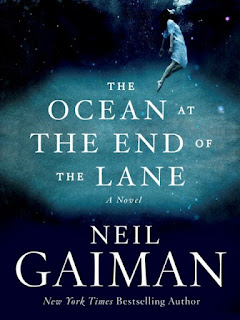As a welcome change of pace and subjects, my current reading is something completely different from Fantasy, angels and demons - a collection of essays about the powers of food, what exactly we are putting in our mouth, misconceptions about "healthy food" and a lots of interesting little facts mostly unknown to wide audiences brainwashed by media & advertisements. Deep inside we think we probably know that there is nothing better than fresh products directly from a countryside but really, knowledge is most of the time only a matter of perception - this is why people like Joe Schwarcz come so handy because he knows what he is talking about and is entertaining without sounding too preachy or serious (in fact, guy is extremely funny and not complicated at all).
So far I have learned that;
Apple actually has natural nail polish remover (acetone) and a embalming fluid (formaldehyde) in it, but in such small quantities that it shouldn't alarm anyone. Poison after all, is a matter of dose. Aspirin was taken as a prevention for heart-attack but it also caused a lot of death in children whose parents took this advice too seriously. Apparently an ordinary Apple has around 300 chemicals inside which scientists claim actually prevent tumors.
Tomatoes are extremely good for you but not fresh - contrary to my own logic where everything is the best when raw and unspoiled by cooking, Tomatoes are beneficial when cooked because heat releases nutrients that in turn might control cancer cells. Lack of Tomatoes in your diet will reflect in reddening of the skin. And it may be especially helpful on long-distance flights, where a potentially life-threatening condition called deep-vein thrombosis can occur. Sitting in one position, such as in an airline seat, without moving for extended periods increases the chance of blood clots forming in the legs. These clots can travel to the heart or lungs and cause a catastrophe. So when on a long flights, go for Tomato juice!
Cranberries for some reason work extremely well against Bacteria that usually get stuck in humans urinary tract - it simply doesn't allow Bacteria to stay there and it gets washed away with ordinary Cranberries juice. It seems it has similar affect on stomach therefore working effectively as anti-ulcer treatment, protect teeth from Bacteria that cling to them when we eat Sugar and in general works miracles on human bodies. Of course commercial juices are full of Sugar so if you really want to experience health Nirvana, you should stay away from Sugary Cranberries juices and get yourself a real (sour) deal.
Grapefruit has a bad reputation because it cancels effects of medicine taken (imagine that!) and this is why it has ben taken off daily menus in many hospitals. At the same time it levels Cholesterol, reduces the risk of heart disease and generally speaking has a good effects on humans - however, it does not when taken with medicine so it Grapefruit growers are in a bad position because they still have to convince the world that this particular fruit is actually good for you.
Blueberries rank at the top of health charts because of their color - something in that color actually works very well for us, improving our night vision, preventing blood-clots and slowing aging in our brain cells. It might have some effect on aging process in general but so far all the experiments were done on rats and my guess is that small doses of Blueberries eaten in cakes & pancakes & sweets won't actually work as a magic, you need to eat much, much more (on daily basis) to actually get some positive effect.
Citrus fruits might have excellent effect on cancer prevention, however, its all based on lab rats again and even though it works miracles on them, you would need to drink twenty glasses of orange juice per day to get same dose that rats get in one shot (no wonder they suddenly run on their windmills) so until someone finds out how to actually make this work and what doses should be given to people without getting their eyes yellow from vitamin C, it is still just a theory.
Fish - pregnant women who consumed about 300 grams of fish or seafood a week gave birth to children with higher tested IQ scores.
It is still unknown why exactly is it so but it has good effect on our brains, though it has also being noted that certain fish has way too much mercury so its really up to you. It definitely has some effect on depression (countries with high fish intake have low rates of depression and countries with low intakes exhibit high rates), dyslexia, attention deficit disorder, hyperactivity and Alzheimer’s.





